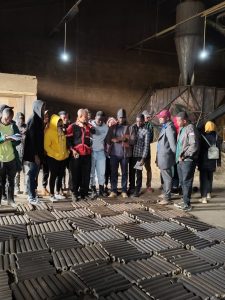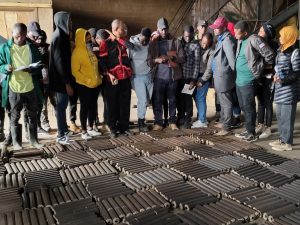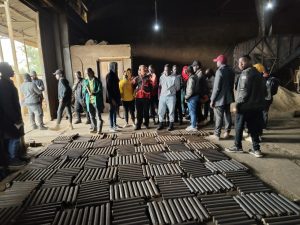Briquettes are compressed blocks or logs made from biomass materials such as sawdust, agricultural residues, wood chips, or other organic waste.
They are a type of solid fuel that can be used for various applications, including cooking, heating, and industrial processes. The process of making briquettes involves compressing the biomass material under high pressure without using any additional binders or additives, or by adding binders to improve the cohesion and binding properties of the briquettes.
Briquettes offer several advantages over traditional fuels like wood or coal. They are a sustainable and renewable energy source since they utilize waste materials that would otherwise be discarded. Briquettes have a higher energy content and burn more efficiently, providing a consistent and controlled heat output. They produce less smoke, emissions, and ash compared to traditional fuels, contributing to reduced air pollution and improved indoor air quality. Additionally, the compact and uniform shape of briquettes makes them easy to handle, transport, and store.
In addition, Briquettes can be produced using various methods, including manual processes, small-scale machines, or large-scale industrial equipment. The choice of biomass material, binder (if used), and production method can vary depending on the specific application, availability of resources, and desired qualities of the briquettes.




BSc. WTVA & BSc. Forestry in the Field Practical Training on briquettes making at KIDT
In Kilimanjaro Industrial Development Trust (KIDT) Students were exposed on various process in production of briquettes such as; Material Selection, Material Preparation, Mixing, Moisture Adjustment, Compression. Release and Storage, Drying, Quality Control, Packaging and Utilization of briquettes.KIDT.
The supervision was under Prof F.B.S Makonda and Mr G. Mangi.




